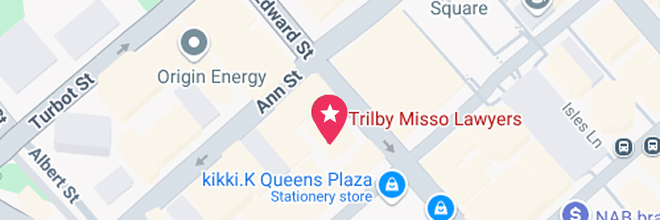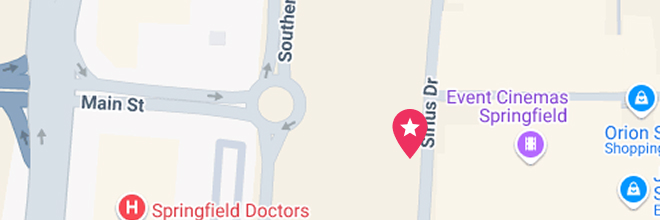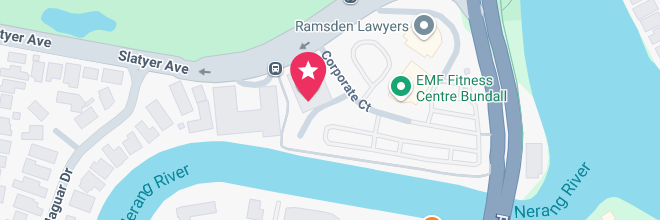Our Brisbane CBD Office
- Suite 400, Level 4/288 Edward St, Brisbane City QLD 4000
- (07) 3910 5470




Suffering an injury at work can be a stressful experience, both physically and financially. Fortunately, workers in Australia have rights under workers compensation schemes designed to provide financial relief and support. If you’ve been injured on the job, understanding the steps involved in making a compensation claim is crucial to ensuring you receive the benefits you’re entitled to.
This blog will guide you through the essential steps for injured workers, from filing a work cover claim to navigating the legal process with the help of accident lawyers. We’ll cover everything from what a compensation claim is, how to avoid common pitfalls, and how to maximise your claim. Whether you’re dealing with a minor injury or something more serious, knowing your rights and options is the key to getting back on track.
Read on to gain valuable insights and ensure your personal injury claim is handled smoothly, so you can focus on recovery without unnecessary financial stress.
What is a Compensation Claim and When Can You Make One?
A compensation claim is a legal process where an injured worker seeks financial relief for injuries or illnesses sustained in the workplace. The compensation typically covers medical expenses, lost wages, and, in some cases, rehabilitation and future loss of earnings. In Queensland, workers compensation is a no-fault system, meaning that you don’t have to prove that your employer was negligent to make a claim. However, there are specific requirements and timelines that must be met.
When Can You Make a Compensation Claim?
To qualify for compensation, you must be classified as a “worker” under the Workers’ Compensation and Rehabilitation Act 2003, and the injury or illness must be connected to your employment. Keep in mind that different industries may have varying regulations, so it’s essential to understand your specific circumstances.
Important Points to Remember:
By knowing when you can make a compensation claim, you’re already taking the first step towards securing the benefits you deserve.
Work cover claims are a crucial aspect of the workers compensation system in Queensland, providing financial support for employees injured in the workplace. Understanding your rights and responsibilities in this process is essential to ensure that you navigate it successfully and receive the benefits you deserve.
Your Rights as an Injured Worker
Your Responsibilities as a Claimant
Understanding your rights and responsibilities in the work cover claims process is vital for securing the compensation you deserve. By being informed and proactive, you can navigate this complex system more effectively and focus on your recovery.
Navigating the complexities of compensation claims can be daunting, especially when you’re dealing with the physical and emotional aftermath of a workplace injury. This is where accident lawyers in Brisbane come into play. They are specialists in personal injury law and can provide invaluable assistance throughout your compensation journey.
Expert Guidance Through the Claims Process
Accident lawyers understand the intricacies of the compensation system, including relevant laws, regulations, and procedures. They can help you:
Negotiation and Representation
Accident lawyers also excel in negotiation, representing your interests when dealing with insurance companies or employers. They can:
No Win, No Fee Arrangements
Many accident lawyers operate on a “no win, no fee” basis, meaning you won’t have to pay legal fees unless your claim is successful. This arrangement provides peace of mind, allowing you to focus on your recovery without the added financial burden.
The role of accident lawyers in Brisbane is crucial for ensuring that injured workers receive the compensation they deserve. With their expertise and support, you can navigate the complexities of the claims process more effectively, allowing you to concentrate on healing and moving forward.
Steps to Take After a Workplace Injury: Building a Strong Case
Experiencing a workplace injury can be overwhelming, but taking the right steps immediately after the incident can significantly impact the success of your compensation claim. Building a strong case requires careful action and attention to detail. Here’s what you should do following an injury at work:
Your health should be your top priority. Seek immediate medical attention for your injuries, even if they seem minor at first. Not only is this essential for your recovery, but it also establishes a medical record that will be crucial for your compensation claim. Be sure to follow all medical advice and keep records of all treatments, medications, and appointments.
Notify your employer about the injury as soon as possible. Under Queensland law, employers must be informed within 30 days of the incident. Provide a detailed account of what happened, including the time, place, and circumstances surrounding the injury. This report is vital for initiating the claims process.
Keeping thorough documentation is key to building a strong case. Collect and maintain the following:
Track all expenses related to your injury, including medical bills, travel costs for appointments, and any other financial impacts you experience. This information will be important when calculating the compensation amount you are seeking.
Engaging with an accident lawyer early in the process can provide you with critical legal advice and support. They can help you understand your rights, assess your case’s strength, and guide you through the claims process effectively.
Once you’ve taken the above steps, your lawyer will help you navigate the claims process. They will assist you in lodging your work cover claim and ensuring that all necessary documentation is submitted promptly.
Taking the right steps immediately after a workplace injury can set the foundation for a successful compensation claim. By prioritising your health, documenting the incident, and seeking legal assistance, you will significantly enhance your chances of receiving the compensation you deserve.
How to Lodge a Successful Personal Injury Claim
Lodging a personal injury claim can be a complex process, but with careful planning and attention to detail, you can enhance your chances of success. Here are the essential steps to follow when preparing to lodge your claim:
Before you lodge your claim, ensure you have all the necessary documentation ready. This includes:
Once you have the required documentation, you’ll need to complete the official claim form. This form usually includes:
Be meticulous when filling out the form. Errors or omissions can lead to delays or denials of your claim.
In Queensland, it’s essential to submit your claim as soon as possible. You typically have up to 12 months from the date of your injury to lodge your claim. Delays can result in complications or even a loss of your right to claim.
Consulting an accident lawyer is advisable during this process. They can provide valuable insights into your claim’s strengths and weaknesses, help you complete the paperwork, and ensure all relevant documents are submitted correctly.
Maintain copies of all documents submitted, including the claim form and any correspondence with your employer or the insurance company. This will help you track the progress of your claim and provide a reference point if any issues arise.
After lodging your claim, stay proactive. Follow up with your lawyer and the insurance company to ensure that your claim is being processed. Timely communication can help address any potential issues before they escalate.
Lodging a successful personal injury claim requires careful preparation and attention to detail. By gathering the necessary documentation, completing the claim form accurately, and seeking legal assistance, you can significantly improve your chances of securing the compensation you deserve for your workplace injury.
Common Challenges in Compensation Claims and How to Overcome Them
Navigating the compensation claims process can be fraught with challenges. Understanding these obstacles and knowing how to address them can significantly enhance your chances of success. Here are some common challenges faced by injured workers and tips on how to overcome them:
One of the most frustrating aspects of the claims process can be delays. These may occur due to incomplete documentation, insufficient evidence, or backlog within the claims department. To combat this:
Claims can be denied if there isn’t enough evidence to support your case. To strengthen your claim:
Disputes may arise regarding who is at fault for the injury. In some cases, employers might argue that the injury was due to the employee’s negligence. To address this:
Many injured workers are unaware of their rights within the compensation claims process, which can lead to underclaiming. To avoid this:
Dealing with an injury can take a toll on your mental health. Feelings of frustration, anxiety, or depression may arise, making it challenging to focus on your claim. To manage this:
While challenges in the compensation claims process are common, being informed and proactive can significantly mitigate these issues. By staying organised, gathering sufficient evidence, understanding your rights, and prioritising your mental health, you can navigate the claims process more effectively and increase your chances of a successful outcome.
What to Expect After Lodging Your Claim: The Next Steps
Once you’ve lodged your compensation claim, it’s important to understand the steps that follow and what to expect during the process. This can help ease any anxieties and keep you informed as your case progresses. Here’s a breakdown of the typical steps after lodging your claim:
Shortly after submitting your claim, you should receive an acknowledgment from the relevant authority or your employer’s insurer. This acknowledgment confirms that your claim is being reviewed. It’s essential to keep this correspondence for your records.
The insurance company or claims authority will conduct an investigation into your claim. This often involves:
In many cases, the insurer will require you to undergo a medical assessment. This is typically performed by an independent medical practitioner who will evaluate your injuries and their impact on your ability to work. Prepare for this assessment by:
After the investigation and any necessary medical assessments, the insurer will make a decision regarding your claim. You will receive a written notice outlining:
If your claim is denied or if you disagree with the compensation amount offered, you have several options:
If your claim is approved, you may enter into negotiations for a settlement. This process can involve discussions between you, your lawyer, and the insurer to agree on a fair compensation amount. Your lawyer will ensure that your best interests are represented during these negotiations.
Understanding what to expect after lodging your claim can alleviate stress and help you stay proactive. By staying informed about the process, cooperating with investigations, and seeking legal assistance when needed, you can navigate the post-claim landscape more effectively. Remember, every claim is unique, so staying engaged with your lawyer and being proactive in communication is key to a successful resolution.
In Queensland, you typically have 3 years from the date of your injury to lodge a personal injury compensation claim. For work cover claims, you should notify your employer as soon as possible, ideally within 30 days, to ensure you meet any requirements for claiming entitlements.
Compensation for a work-related injury can include coverage for medical expenses, lost wages, rehabilitation costs, and any permanent impairment benefits. The exact amount will depend on the specifics of your case and the severity of your injuries.
While it’s not mandatory to have a lawyer, having legal representation can significantly improve your chances of success. A qualified accident lawyer can help you navigate the claims process, gather necessary documentation, and negotiate a fair settlement on your behalf.
Queensland Government: WorkCover Queensland
This website provides comprehensive information on workplace safety, injury prevention, and how to navigate the compensation claims process in Queensland.
URL: https://www.worksafe.qld.gov.au/injury-prevention-safety
Australian Lawyers Alliance: Compensation Claims
The Australian Lawyers Alliance offers insights into compensation claims, including guidance on your rights as an injured worker and tips for pursuing your claim effectively.
URL: https://www.lawyersalliance.com.au/resources/campaigns/workers-compensation
Safe Work Australia: Workers’ Compensation
This resource outlines the key aspects of workers’ compensation across Australia, detailing how the system operates and the various entitlements available to injured workers.
URL: https://www.safeworkaustralia.gov.au/worker-compensation
Navigating the compensation claims process as an injured worker can be complex, but understanding the essential steps can empower you to seek the support you deserve. From understanding your rights and gathering necessary documentation to lodging your claim and knowing what to expect during the review process, each step is crucial. Engaging experienced accident lawyers can enhance your chances of a successful outcome. Remember, timely action and informed decisions are key to securing fair compensation for your injuries, ensuring that you receive the support needed to aid your recovery and financial stability.
Kathryn is Trilby Misso’s Chief Executive Officer.
Meet KathrynUse this simple online tool and find out if you have a claim in less than thirty seconds. You can choose to remain anonymous.
Your next step is a small one. All you need to do is give us a call on 07 3910 5470 or complete this form here to arrange a quick chat.
During this initial conversation, we will:

We understand that taking legal action can be stressful, and we’ll do all we can to ease your concerns.
The chat can take place at our place, your place, or by phone. There is no cost, no pressure, and no obligation.
Call 07 3910 5470 or fill out this form, and we’ll get back to you within 2 hours (during business hours). We look forward to meeting you.
enquire now